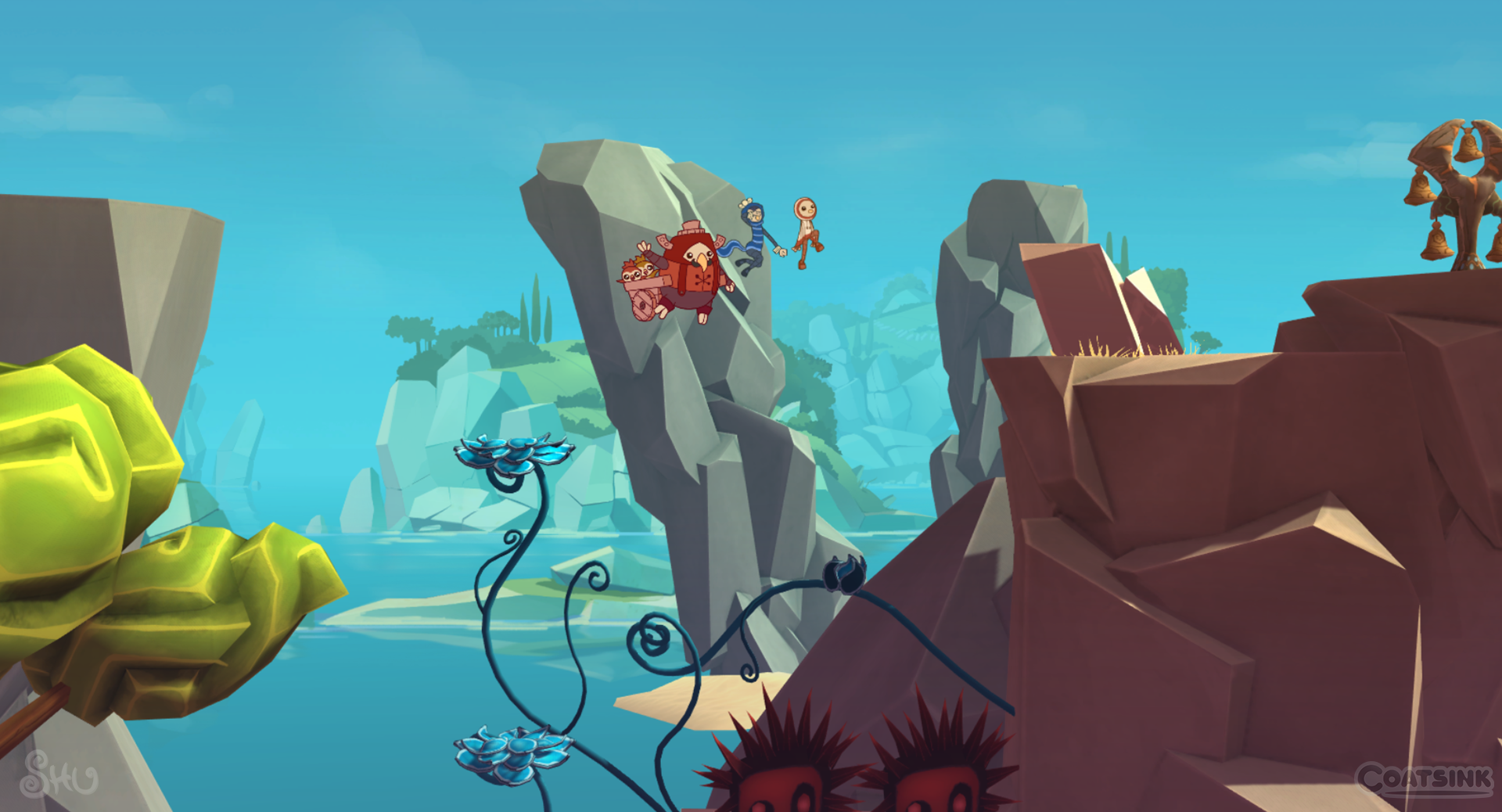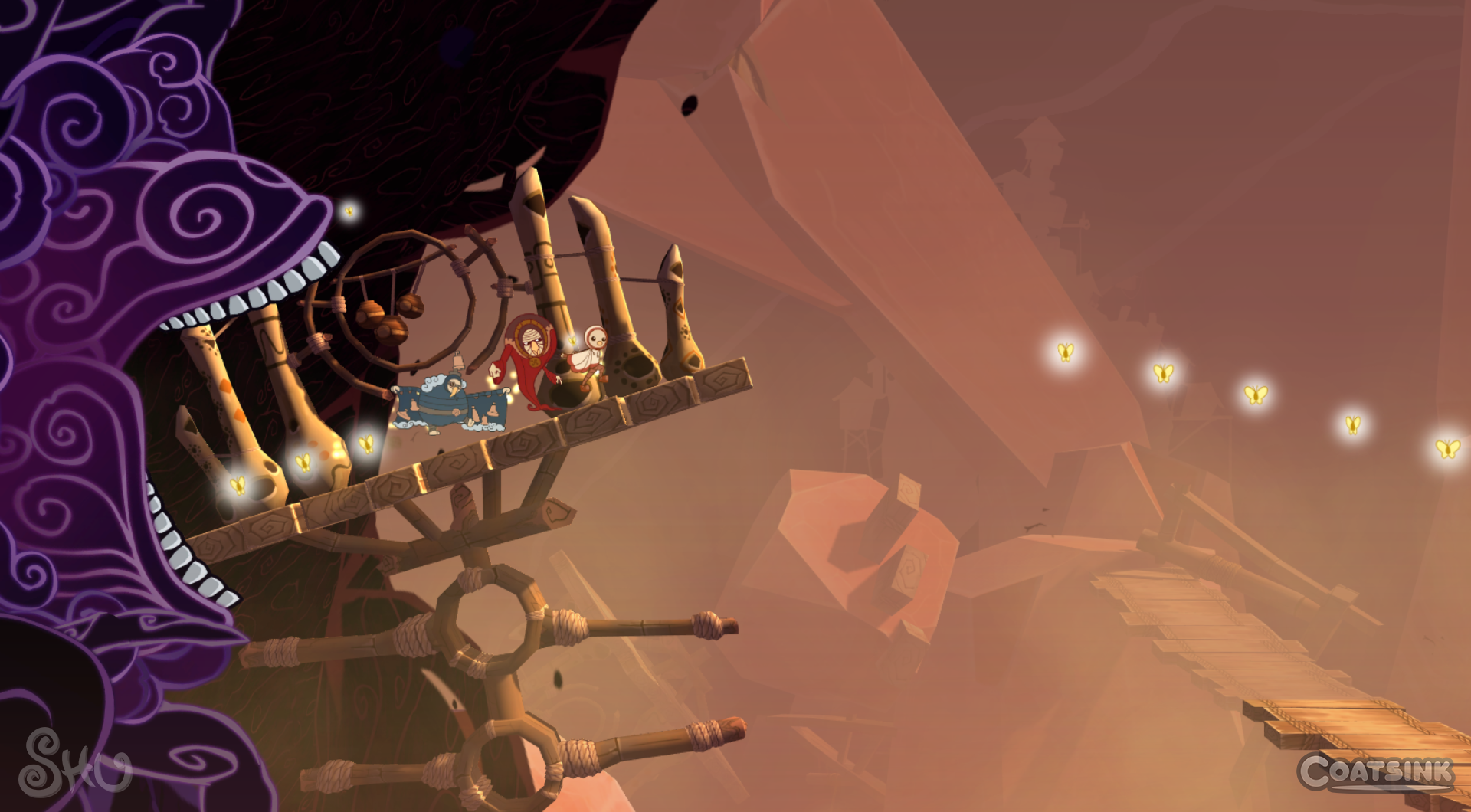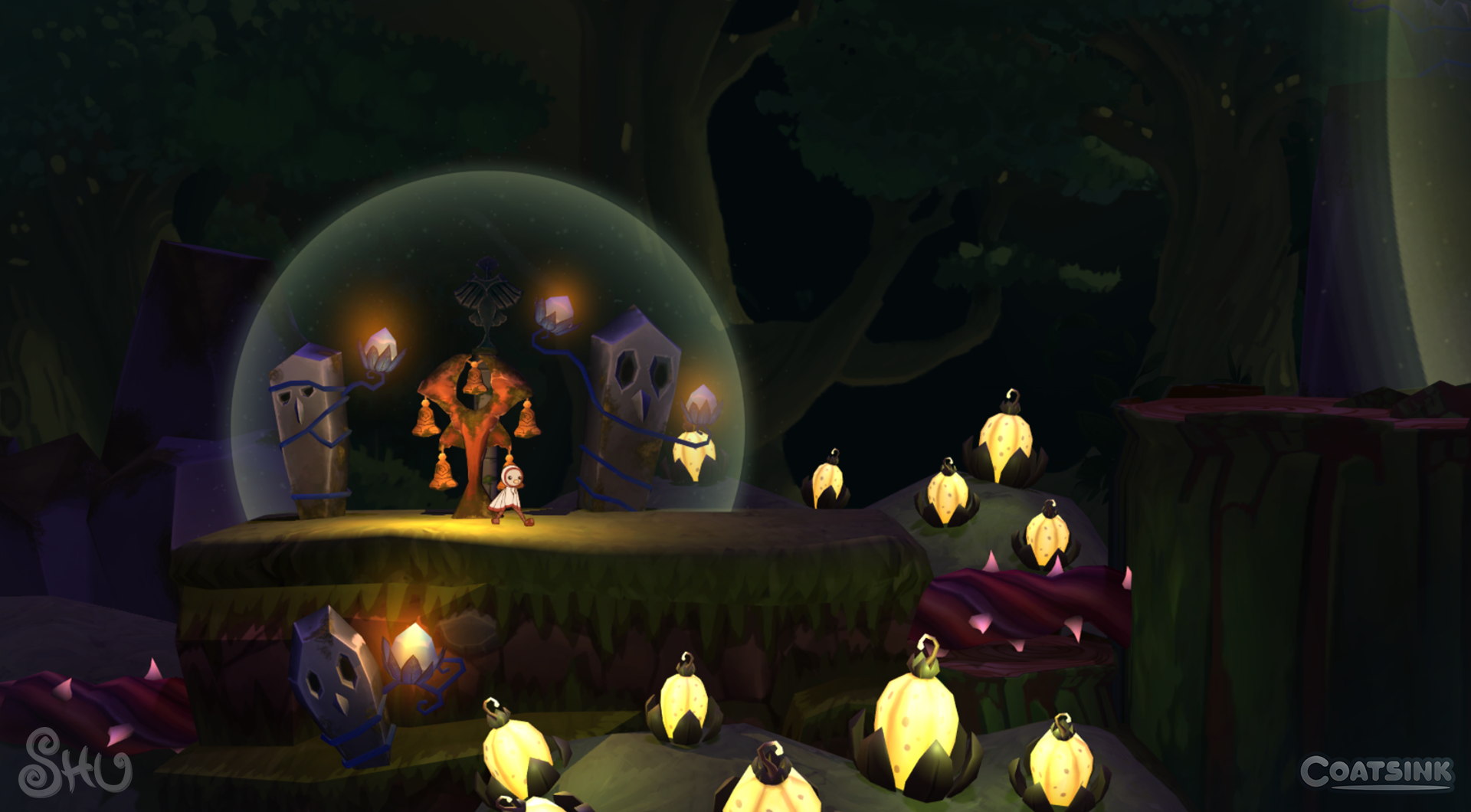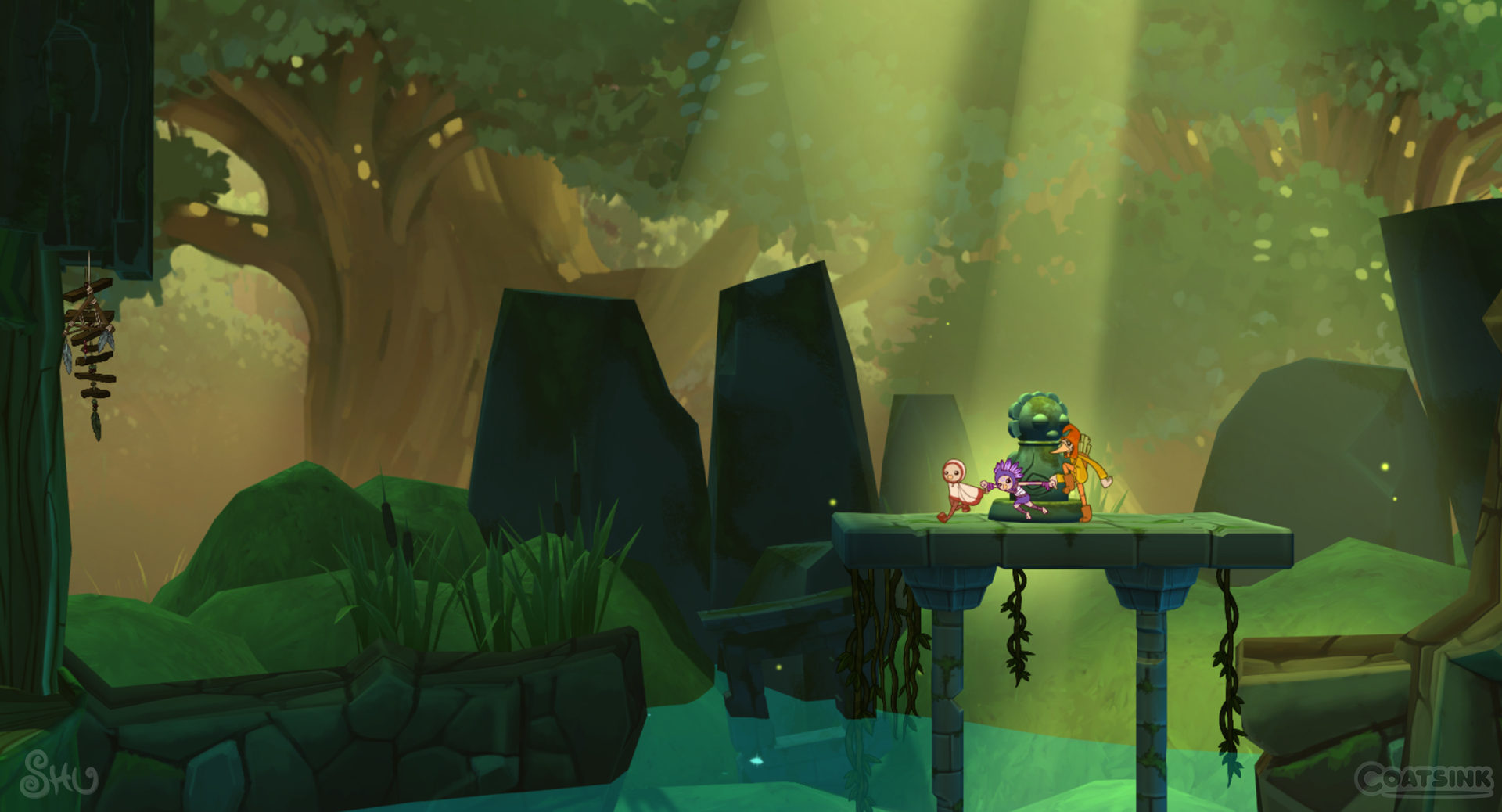Shu is one of the most pure-cut platforming titles I've played this generation – a feat that is both the game's biggest strength and weakness. The first console game crafted by the people over at Coatsink, the game is a no-frills approach to a tried-and-true genre: the 2D platformer. And while the game undoubtedly had a certain charm given its distinct, hand-drawn style, Shu is a game best saved for those looking for a brisk challenge and not much else.
The game opens with a brief tale of loss – the titular Shu is seen gallivanting around his town until the elder informs him of a looming danger. In an instant, an evil, smiling cloud-like monster comes and attacks the village – it is up to Shu to rid the world of the dangers. The scene, which is illustrated without words, gives context to what would otherwise be a storyless campaign.
Other than the brief motivation, you are really only venturing to get from the left to the right side of the screen, grabbing as many collectibles as possible along the way. And while this may be coming off as a negative portrayal, it isn't – the game is in many ways a nice reprieve from other more experimental titles that have come out lately like INSIDE or Hue.
Shu's immediate controls are very simple – you are able to move, jump and glide. That's it. However, the gameplay does feel finely tuned and satisfying. Every jump and glide I made felt precise and every death felt deserved.
Throughout various levels you will be able to meet up with scattered villagers and temporarily use their powers as they follow you. This can bring standard platforming mechanics – like ground pounding, running on water, and wall jumping – as necessary to tackle the specific level designs. At the end of the stage, the villagers are typically carted off and you surrender your newly-discovered abilities. Every ability feels tailored to the level itself, and is so fleeting that nothing ever feels overused.
Unfortunately, the same could be said for the entire game. With only a handful of levels, it is easy enough to clear Shu's most basic story beats. With that said, Coatsink has padded the game out with more than enough collectibles and additional obstacles to keep you coming back.
Thankfully, the levels feel diverse – gameplay-wise and stylistically. For instance, after spending time with some introductory, grassy scenery, I was introduced to an area where I had to run in darkness from cover to cover in order to avoid lightning bolts. With only three levels in each world, Coatsink was able to squeeze some excitement and diversity into each stage.
Each of Shu's levels will have butterflies, baby birds (titled "Babbies") and mosaic pieces to collect, all while trying to beat time trials and to survive death-free runs. Not to mention that trophies (on PlayStation 4) seem to pop constantly – there was a brief period in a level where eight separate trophies seemed to unlock simultaneously. If you consider yourself a completionist, I wouldn't be surprised if your playtime clocked in around 9 or 10 hours.
Another thing worth noting is the difficulty which seems to be perfectly balanced – at least, for my tastes. Regardless of the section, I would never die more than two times between any given checkpoint. In turn, the game came off as challenging, while not being painfully difficult.
The game teeters between being a slow, adventurous collectathon and break-neck intensity – notably when the "Run!" sections hit and you are pursued by the evil cloud. Those latter sections get so intense, my leg would twitch with every jump Shu would make.
However, as I stated earlier, the main complaint I have that will keep people away is the lack of innovation. While traditional platformers will be right up many people's ally, the game can hardly boast any innovative feature, stellar storytelling, or gimmick. The game tends to feel one-dimensional at times, especially if you are looking for some more complexity when it comes to gameplay.
Shu is a no frills approach to the classic 2D platformer. With a beautiful artstyle, fine-tuned controls, and a brisk difficulty, Shu is a short but sweet experience. However, even with collectibles and time modes, some players will likely be turned off by the simple controls and lack of innovation.




